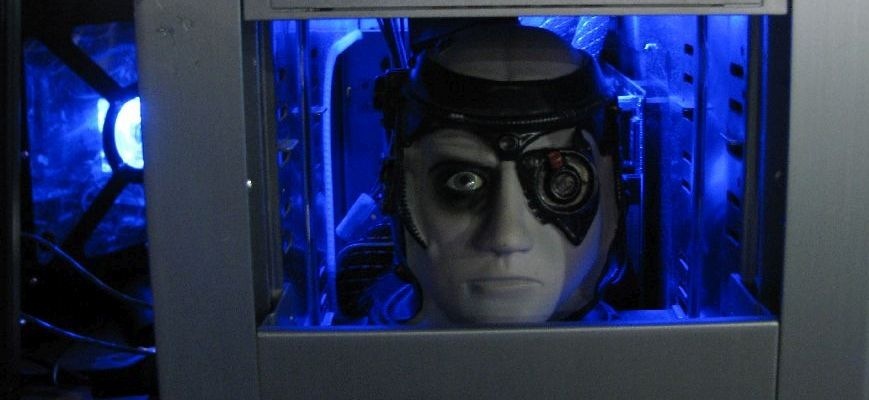Corporate Culture Lessons from Star Trek: Why teams should avoid the "hive" mind?

Just like bee hives, teams can be very effective in pulling groups together to produce results. One trap to avoid is some of the pitfalls of teams that stifle innovation. From information technology to marketing to events and hospitality, innovation is a key success factor in many industries and occupations.
One way of looking at corporate culture is by examining how it through the prism of popular TV programmes. For example, one can draw interesting parallels between toxic corporate cultures and The Borg on Star Trek. The way in which the creative team for Star Trek tackled The Borg storyline was absolutely brilliant. On Star Trek, the driving force of The Borg collective is perfection. They attempt to achieve it by enforcing uniformity and conformity.
Some corporate cultures are like that. Perfection becomes an end in and of itself rather than a means to satisfying the needs of clients. There is no margin for error. Senior managers and team leaders set unrealistic expectations. Even though they are not perfect, the leadership team in these organizations demands perfection from team members and punish mistakes that have little impact on the ultimate goal of generating a profit by providing excellent services, products, and customer service.
Enter "The Borg"
Any corporate culture that compels employees to suppress their individuality and punishes those who fail to conform is similar to The Borg. It's one thing to promote a shared set of values, foster innovation and encourage team members to treat one another and clients with respect and dignity. It's quite another to, in Borg-like fashion, force conformity, suppress individuality, and punish team members who express different points of view.
"Resistance is futile....you will be assimilated..."
Star Trek
Some companies reflect an almost "hive mind" mentality by punishing those who express points of view that are not identical to the rest of the team. As you watch this video, every time you hear "The Borg", replace it with the name of any company with a toxic corporate culture and the parallels will leap off the screen.
What Dress Reveals about the Hive Mind
Sometimes, the hive mind becomes so entrenched that employees begin to sound alike and dress alike. Definitely, it is important for employees to dress in a professional manner. No one wants people showing up for work in cut-offs, torn jeans, and flip-flops unless they are running a rugged adventure service at the beach. Some corporate cultures define dress code so rigidly that employees become almost like The Borg with their cyber implants and clone-like appearance. They think the same, act the same and look the same.
Dress down or casual Fridays also tell you a lot about corporate culture. The unwritten dress code is very powerful. It's not written down but heaven help the team member who does not conform. Observe how employees dress on casual days. It's an excellent indicator of the degree to which conformity is expected. Yes, how one dresses on casual days can have an impact on your opportunities for advancement.
Before starting my own business, I worked for one company that had "dress down Fridays". For the longest time I didn't dress down. I just wore my regular business clothing. I was criticized for being "too stiff and formal". Eventually, I caved in and started to dress down.
As I didn't become a Dockers and golf shirt clone, there was even more criticism. Call it the stubborness of youth. Call it an unwillingness to compromise. I just didn't see why I should invest in golf shirts when I remembered a time when many golf clubs didn't even accept Black people as members. (I guess Tiger Woods took away that argument.)
If truth be told, I guess the real reason I insisted in wearing red track pants on dress down days (when I wasn't facilitating meetings or workshops) was because I knew it bugged a few people. So, when I got sick of the whispers, I said, tell you what, "let's go back to too stiff and formal and leave it at that."
The irony of this is that, just before I left the company, not too long after the "stiff and formal" saga, I took up horse riding and became a serious polo fan. By choice, I started to wear polo shirts and I still wear them when I feel like it. Polo shirts, golf shirts, what's the difference? Would it have killed me to wear a golf shirt? Of course not, however, at the time, the loss of individuality was too just too high a price for me to pay just to "fit in".
I also remember a certain engineer who used to wear leather pants and drive a motorcycle to work. By all accounts, he was a brilliant engineer. I'm not sure why people had such a problem with the leather pants. He wasn't meeting with clients so it really didn't matter. I found him refreshing and I am in touch with him to this day. By the way, he moved to Australia and has become an executived. He's ditched the leather pants and he no longer drives a motorcycle. :)If you are clean and tidy and your performance is excellent why should conformity to informal dress codes be a career limiting move?
The bottom line is that people are often punished more severely when they break unwritten rules than rules that are explicitly stated. This emphasis on externals wastes valuable time and energy that could be invested in things that really matter such as improving products and service delivery.
Corporate Culture Counts
Corporate culture is powerful. Some companies, like 3M, place a priority on innovation and encourage employees to come up with new ideas. They even have contests to reward team members who think of new ways to extend the life of existing products. 3M has had in extending the life of Post-it notes. This has come by rewarding differences and new ways of thinking rather than punishing it.
There are entire industries that thrive on this type of innovation. For example, the Jamaican reggae industry has been transformed by dub versions of popular rhythm tracks. This is one of the reasons that it has had such a huge impact on the global landscape.
A negative corporate culture is hazardous to one's personal health and the financial health of the organization. I have witnessed enough mergers to realize that when an innovative company merges with a more traditional and conservative organization, the more negative and deeply entrenched culture will always prevail unless there is a strategy to ensure that this doesn't happen.
Zappos CEO Tony Hseih drives home this point in the following video.
One thing is certain, if senior management does not take steps to shape corporate culture, it will deteriorate. Companies that invest millions of dollars in advertising and neglect corporate culture are "penny wise and pound foolish". The explosion of social media and websites that give people a chance to rate their companies gives unhappy employees more and more channels to vent. It is really important to ensure that when employees go home at the end of the day or leave to work somewhere else, they say positive rather than negative things about your company.
Lessons Learned
A positive corporate culture is a definite source of competitive advantage. It helps companies get the very best out of their people. Savvy executives know how to shape and harness it to ensure that it is a constructive force that facilitates the achievement of corporate goals. Insist on conformity to the hive mind and you'll stifle innovation and the benefits that go with it.
Photo Credit: Global Gamers (Flickr)
Can you think of examples of when you saw the hive mind at play in a corporate setting?
What can savvy executives do to foster innovation and avoid a culture like the Hive Collective?
"Articles from Anne 🐝 Thornley-Brown, MBA
View blog
🎄 Christmas in July: My Special Gift for Entrepreneurs 🎁 · 🎯 𝐓𝐚𝐫𝐠𝐞𝐭 𝐀𝐮𝐝𝐢𝐞𝐧𝐜𝐞: Entrepreneurs and emer ...

Netiquette = net (as in internet) + etiquette · Netiquette is a collection of unwritten rules of eng ...

Clients from hell....we've all had them. · Just like sexual harassment and problem bosses, we're all ...
Related professionals
You may be interested in these jobs
-
drywall installer
Found in: Talent CA 2 C2 - 7 hours ago
PB-23 DRYWALL & CONSTRUCTION LTD. Abbotsford, CanadaEducation: · Expérience: · Education · Secondary (high) school graduation certificate · Tasks · Prepare tenders and quotations · Supervise other workers · Apply successive coats of compound and sand seams and joints · Apply, level and smooth coats of plaster · Clean and prepare ...
-

Equipment Operator
Found in: beBee S2 CA - 2 weeks ago
Health Careers in Saskatchewan Saskatoon, Canada Part timeJob Details RHA Job Number: GO Number of Vacancies: 1 Profession: Maintenance Organization: Saskatchewan Health Authority Facility Name: Royal University Hospital Department: Facilities Management Employment Type: Permanent Employment Term: Part Time Posting Date: March 7, 2024 C ...
-
Trim Press Operator
Found in: beBee S2 CA - 3 weeks ago
Orlick Industries Hamilton, Canada TEMPORARYOrlick Industries · Orlick is an automotive parts supplier producing aluminum components for many varieties of vehicles, with Honda being our largest customer. · Why Join Orlick Industries? · Annual wage reviews and increases · Tuition reimbursement · Pension contributions · Co ...



Comments
Anne 🐝 Thornley-Brown, MBA
7 years ago #12
Anne 🐝 Thornley-Brown, MBA
7 years ago #11
I agree. I am in contact with some of the "resistors" to this day and some of us have collaborated on projects and done business together. The creativity and innovative ideas have been taken elsewhere and used where they are available. We severed ourselves from the collective. :)
Martin Wright
7 years ago #10
Ali Anani
7 years ago #9
Amazing are the "proximity of thoughts" between us dear Anne Thornley-Brown. I have just liked, commented and shared your buzz on groupthink mentioned in your comment.
Ali Anani
7 years ago #8
I fully agree with you Anne. Your suggested titles are creative and to the point. I am off now to read your linked buzz. I feel the urge to do so to learn from your clear mind and to compare my thoughts with yours.
Anne 🐝 Thornley-Brown, MBA
7 years ago #7
Ali Anani
7 years ago #6
Anne 🐝 Thornley-Brown, MBA
7 years ago #5
Anne 🐝 Thornley-Brown, MBA
7 years ago #4
Harvey Lloyd
7 years ago #3
Anne 🐝 Thornley-Brown, MBA
7 years ago #2
Kevin Pashuk
7 years ago #1